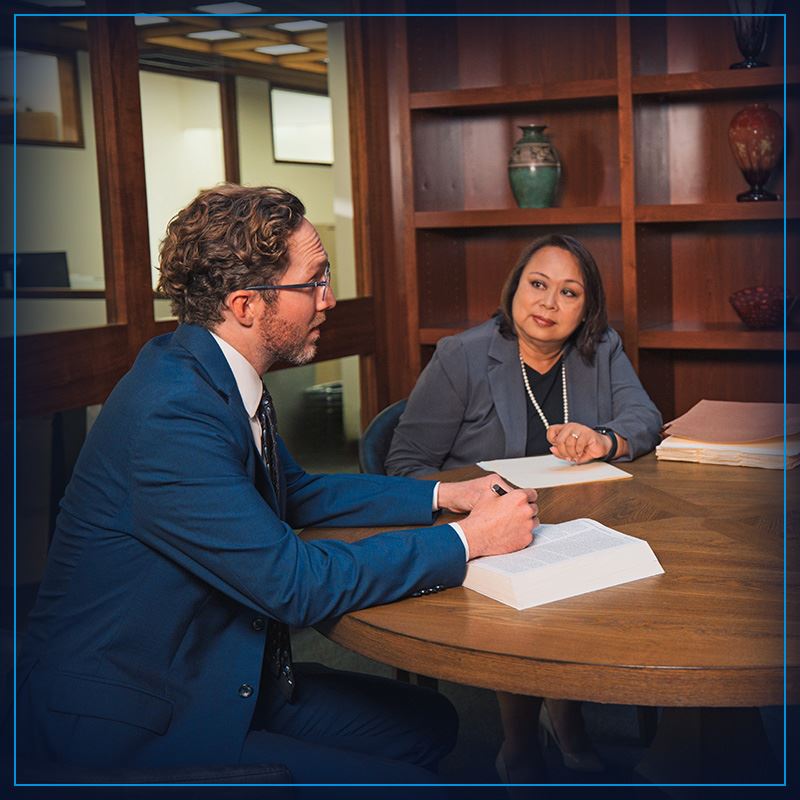
WRONGFUL DEATH OF A CHILD DURING BIRTH
COMPASSIONATE LEGAL REPRESENTATION BACKED BY 40+ YEARS OF EXPERIENCE
When the wrongful death of a child occurs in the womb or soon after birth, their entire family is stunned and traumatized. Parents might have questions for the doctors or other healthcare providers, but sometimes they’re not satisfied with the answers they get. That’s when they come to us. They’re suffering and grieving, and they have deep and genuine concerns. They’re looking for straight talk and straight answers because the deaths of many babies seem so preventable.
If you believe medical negligence or malpractice contributed to your infant’s death, contact the Hawaii wrongful child death attorneys at Davis Levin Livingston for a free consultation.
Hawaii’s Wrongful Death Statute
Wrongful death is controlled by Hawaii Revised Statutes Section 633-3. It states that a wrongful death of a child is a death caused by “the wrongful act, neglect or default of any person.” That’s the law of negligence. The wrongful death of a child can be caused by any act or omission. In a wrongful death case involving a newborn, the parents will bring the action on behalf of the deceased child.
Understanding Birth Negligence
No state has a statute that defines negligence, particularly in the context of the death of a child soon after birth. Negligence is simply defined by the common law as the failure to act as a reasonably prudent person would act under the same or similar circumstances. Negligence doesn’t involve intentional acts; it involves careless acts or omissions. Those acts or omissions might be attributable to physicians, hospital staff, or even hospitals themselves for inadequate oversight.
What Is the Statute of Limitations for the Wrongful Death of a Child in Hawaii?
Every state has a time limit within which an action for injury or death must be brought. Hawaii has a strict statute of limitations for the death of a minor. The wrongful death of a child must be filed within two years of the baby’s date of death. It can’t be filed more than six years after the date of the alleged negligence was or should have been discovered. Failure to file a lawsuit involving the death of a baby within the prescribed statute of limitations can operate to forever bar the parents from seeking compensation for their baby’s death.
There are other reasons for timeliness too. Witnesses and evidence disappear, memories fade, and events tend to get blurry over time. Time becomes critical in the prosecution of any wrongful death case.
How Infant Wrongful Death Cases Are Evaluated
An attorney evaluating an infant wrongful death case will thoroughly review and evaluate each and every medical record involving the infant’s prenatal care, birth, and delivery. Because the law of negligence governs these cases, the attorney will evaluate the applicable standard of care and determine whether there might have been a deviation from that standard of care. This requires extensive legal and medical training and research.
Certification of negligence by an expert isn’t a prerequisite to filing a wrongful death case involving a newborn in Hawaii, but eventually, expert testimony on the standard of care and liability will be required.
Birth Injuries That May Cause a Baby’s Death
Sufficient oxygen is critical to a healthy and live baby being born. Oxygen deprivation not only causes brain injuries, but it can also be fatal. Reduced blood flow also deprives a baby’s body of oxygen. If blood flow is impeded, the brain and heart can stop functioning.
Other conditions that can cause the death of a baby include but aren’t limited to:
- Hemorrhage
- Eclampsia
- Placenta previa or abruption
- Jaundice that goes untreated
- Traumatic damage to the baby’s brain or spinal cord
Wrongful Death Actions for Stillborn Children
Our firm might become involved in the death of an unborn child. Hawaii has recognized that a majority of states have supported a cause of action on behalf of a viable fetus. A Hawaii court held that if a live baby can sue for injuries sustained while a fetus, denying a cause of action for acts or omissions that caused the death of a viable fetus would be an injustice. Its reasoning was that denial of such a cause of action would permit a wrongdoer to increase rather than decrease the consequences of their negligence. The pivotal issue of the viability of a fetus must be decided on a case-by-case basis, though.
Davis Levin Livingston has produced an enviable success rate through the experience, knowledge, and dedication of our Hawaii birth injury attorneys. We’re sensitive to the fact that it’s a difficult phone call to make, but contact us if you believe that a family member has died because of the negligence of somebody else. You’ll get a thorough and free case evaluation.
We can be reached online or by phone at (808) 740-0633.


Four Decades of Record Breaking Victories
-
$15,000,000 Vacuum/Forceps Injury
The hospital improperly attempted to deliver a post-date baby using a traumatic second-stage vacuum extraction. This extraction and the delay in delivery resulted in permanent brain damage to the baby.
-
$9,975,000 Brain Injury
The hospital's failure to monitor an infant's rising bilirubin levels led to bilirubin encephalopathy and kernicterus, resulting in severe and permanent brain damage. A settlement of $9,975,000 was obtained.

Why Davis Levin Livingston?
-
Available by phone 24/7 & ready to help.
-
Secured tens of millions of dollars on behalf of our clients.
-
Highest malpractice judgment in U.S. history against a military hospital.
-
Includes an experienced medical team including a nursing staff to answer your questions.
-
Mark Davis and Mike Livingston have been recognized as some of the best lawyers in Hawaii.
-
Resources available to advance your expenses; no cost or fees unless Davis Levin Livingston wins your case.

Dedicated Legal Counsel You Can Count On
Helping Families throughout hawaii for over 40 years
-
"Professional, KIND, and understanding"
They are most professional, KIND, and understanding. Thank you Matt Winter for all your help.- Clare T. -
"We wouldn't have chosen any other team!"
Mathew Winter and the whole staff of Davis Levin Livingston guided us every step of the way and made sure we understood everything that was going on. They were always so welcoming and compassionate. Communication was never a problem and emails were answered super fast, especially when we had so many questions. They- Maariel -
"The absolute best firm in Hawaii. Compassion and professionalism at its best!"
Truly a wonderful experience with everyone at the firm. I can't thank you enough for helping provide closure for my family and me during this process. The absolute best firm in Hawaii. Compassion and professionalism at its best!- Daniel -
"After doing extensive research I knew that Davis Levin Livingston was the firm for me due to the success they have had in cases like mine."
After doing extensive research I knew that Davis Levin Livingston was the firm for me due to the success they have had in cases like mine. What surprised me was their personal touch. In the 3- Anthony

Did you know?
you are not alone in this.
-
7 OUT OF 1,000 NEWBORNS ARE DIAGNOSED WITH A BIRTH INJURY.
-
IN A YEAR, 157,000 MOTHERS AND CHILDREN SUFFERED POTENTIALLY PREVENTABLE INJURIES.
-
THE LIFETIME COSTS OF BIRTH INJURIES CAN REACH TENS OF MILLIONS OF DOLLARS.
-
ON AVERAGE 28,000 BABIES ARE BORN WITH A BIRTH INJURY EVERY YEAR.







.1).1).2401101010550.png)





.1910211111556.png)

.1).1910211114162.png)
.1910211111550.png)